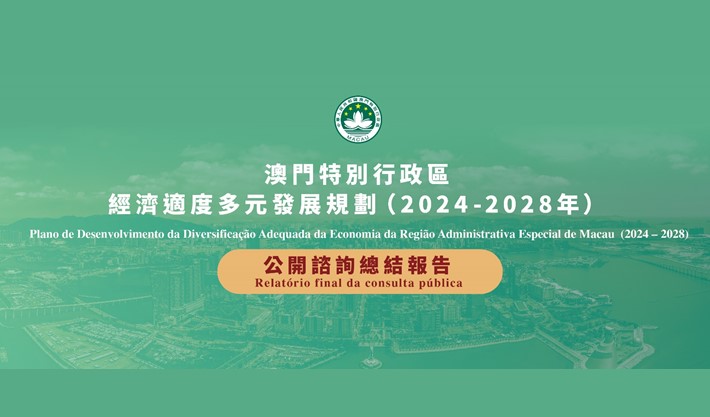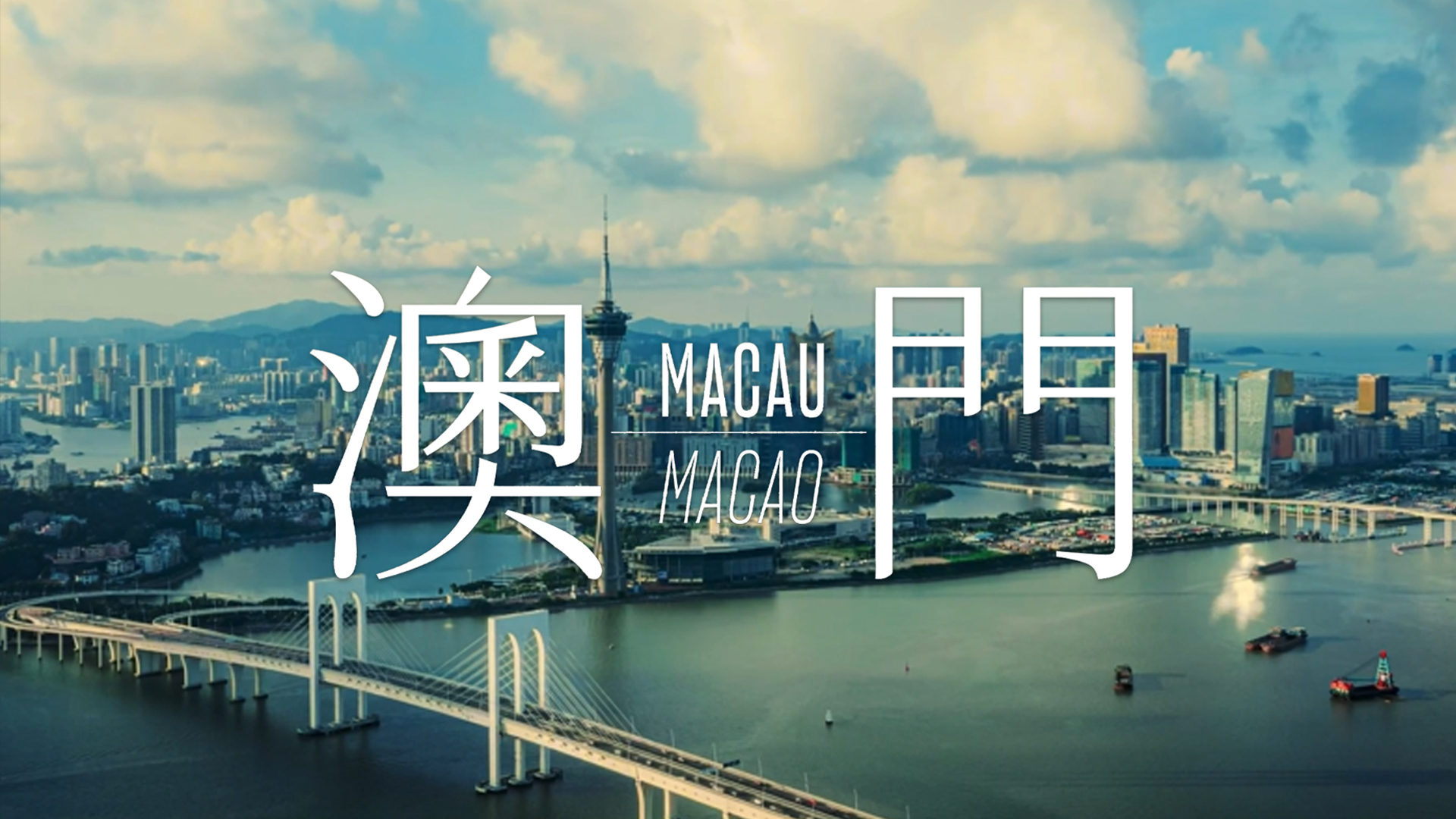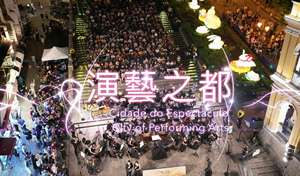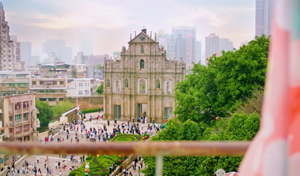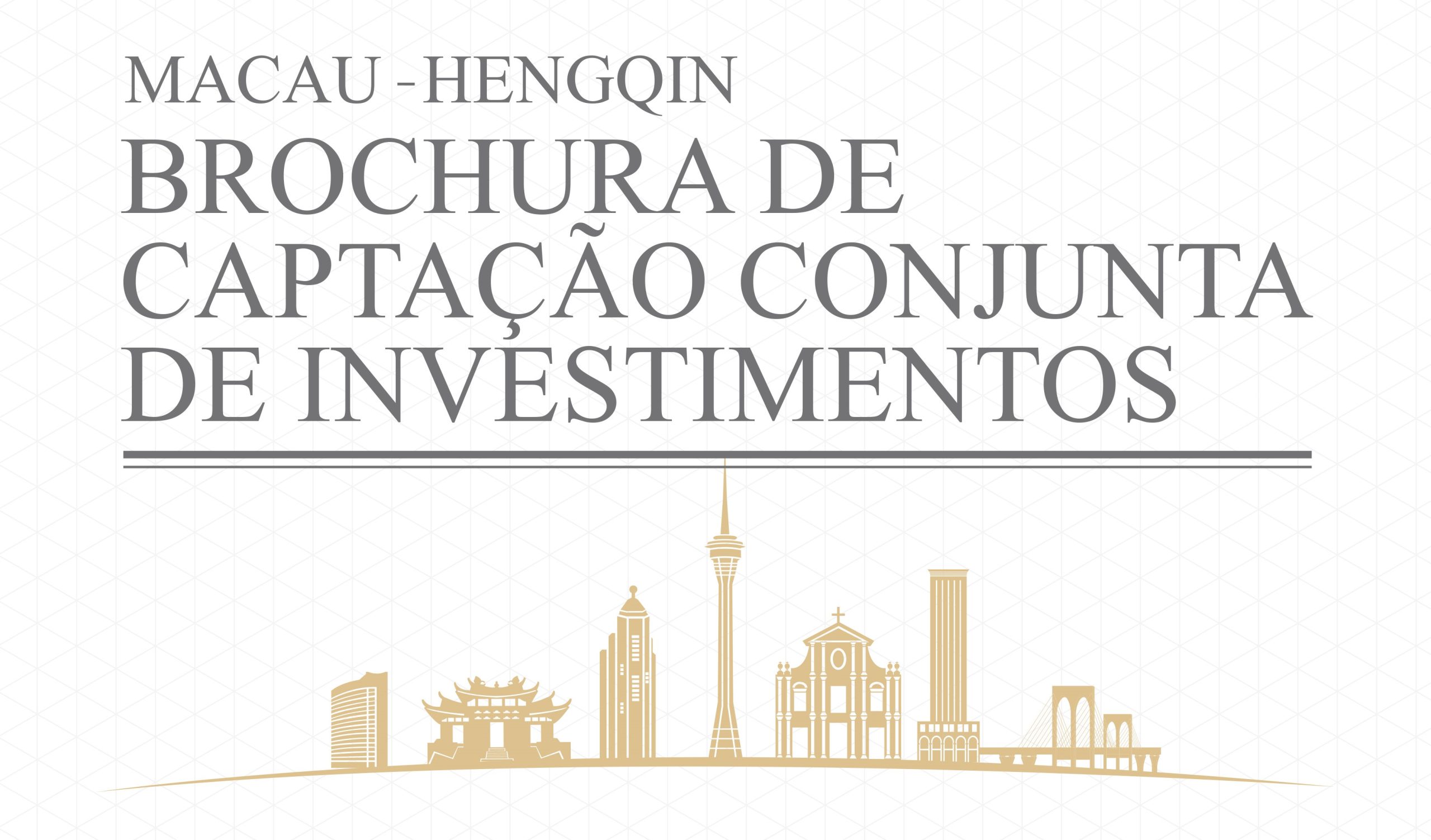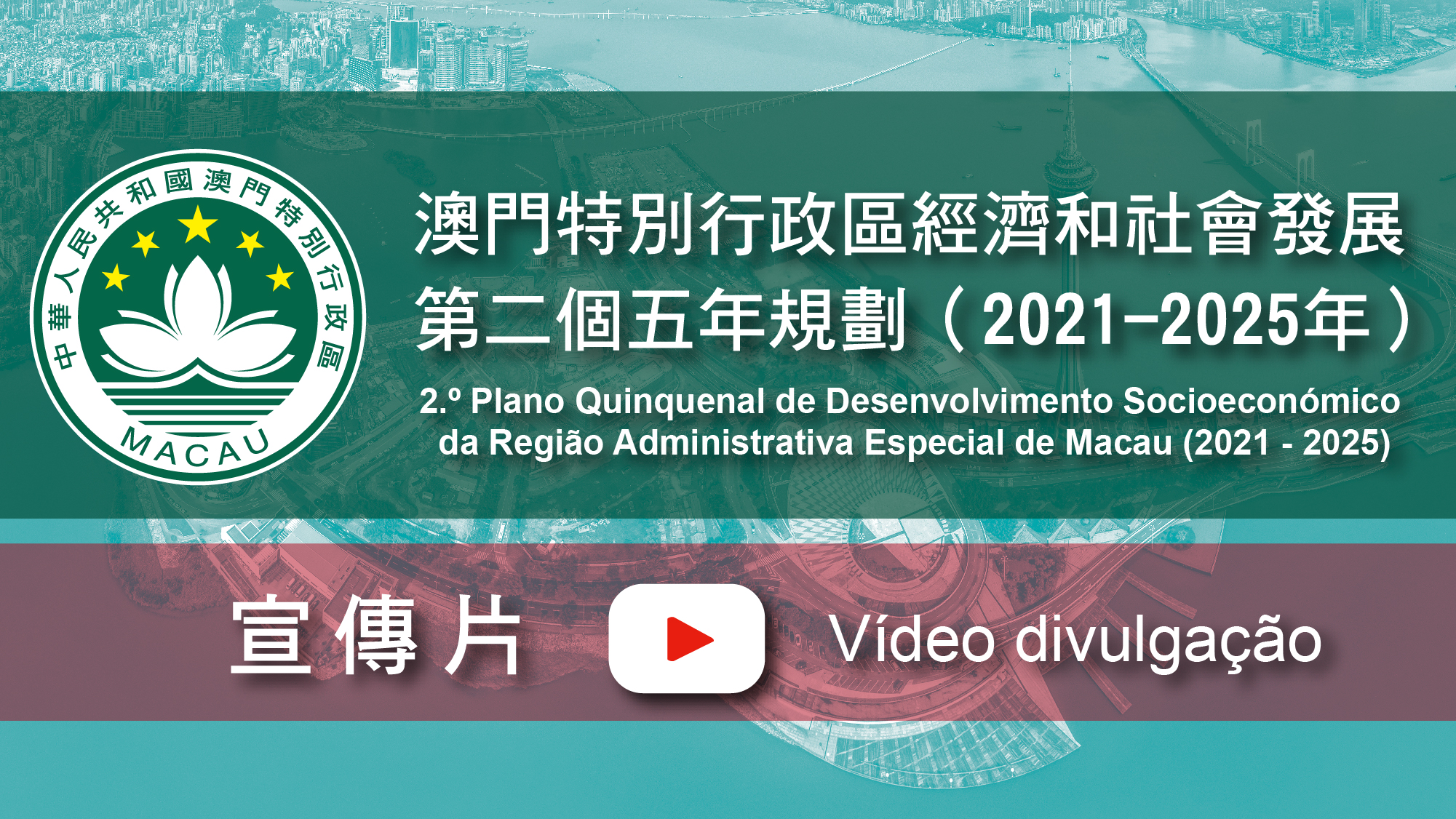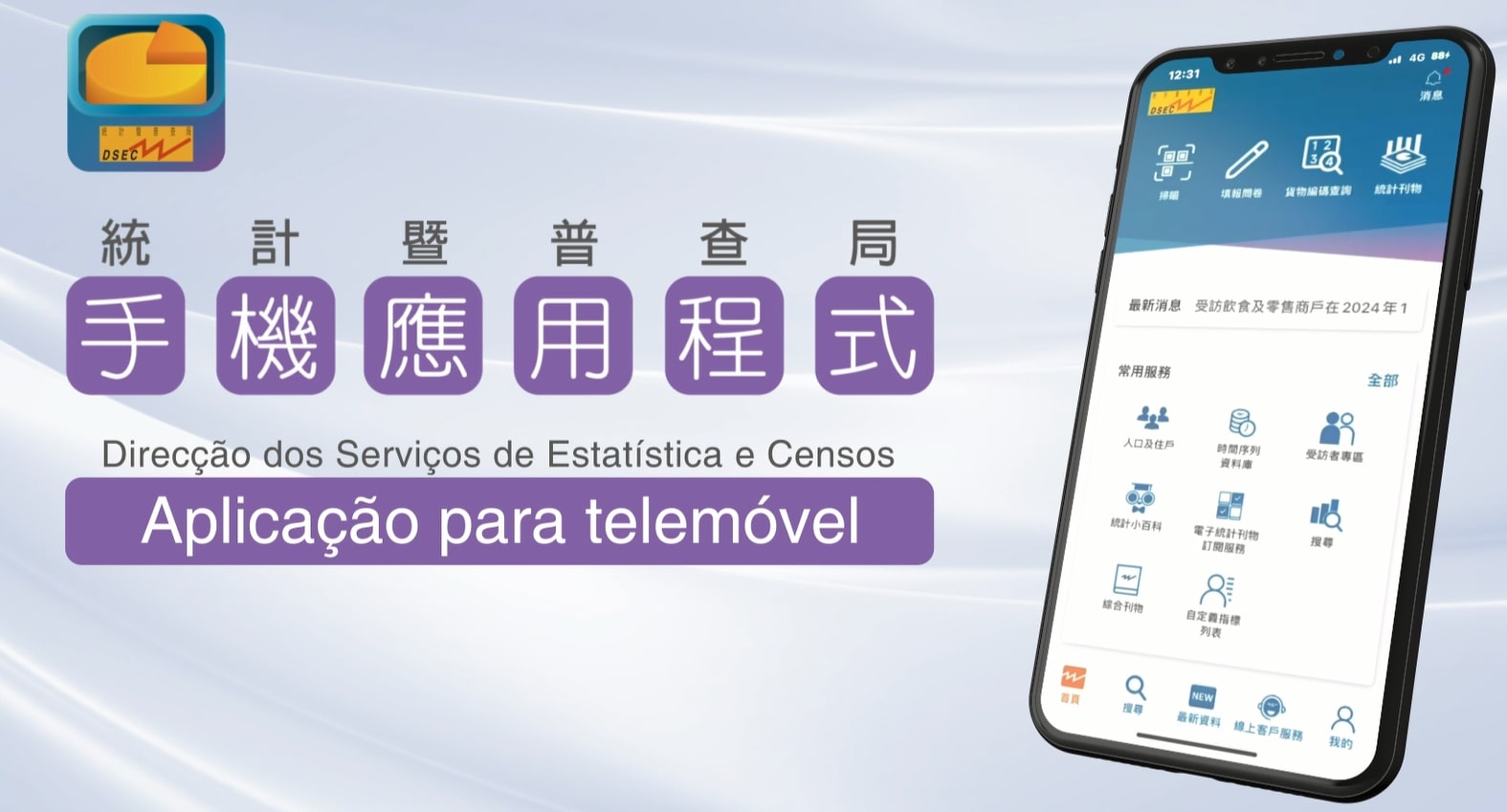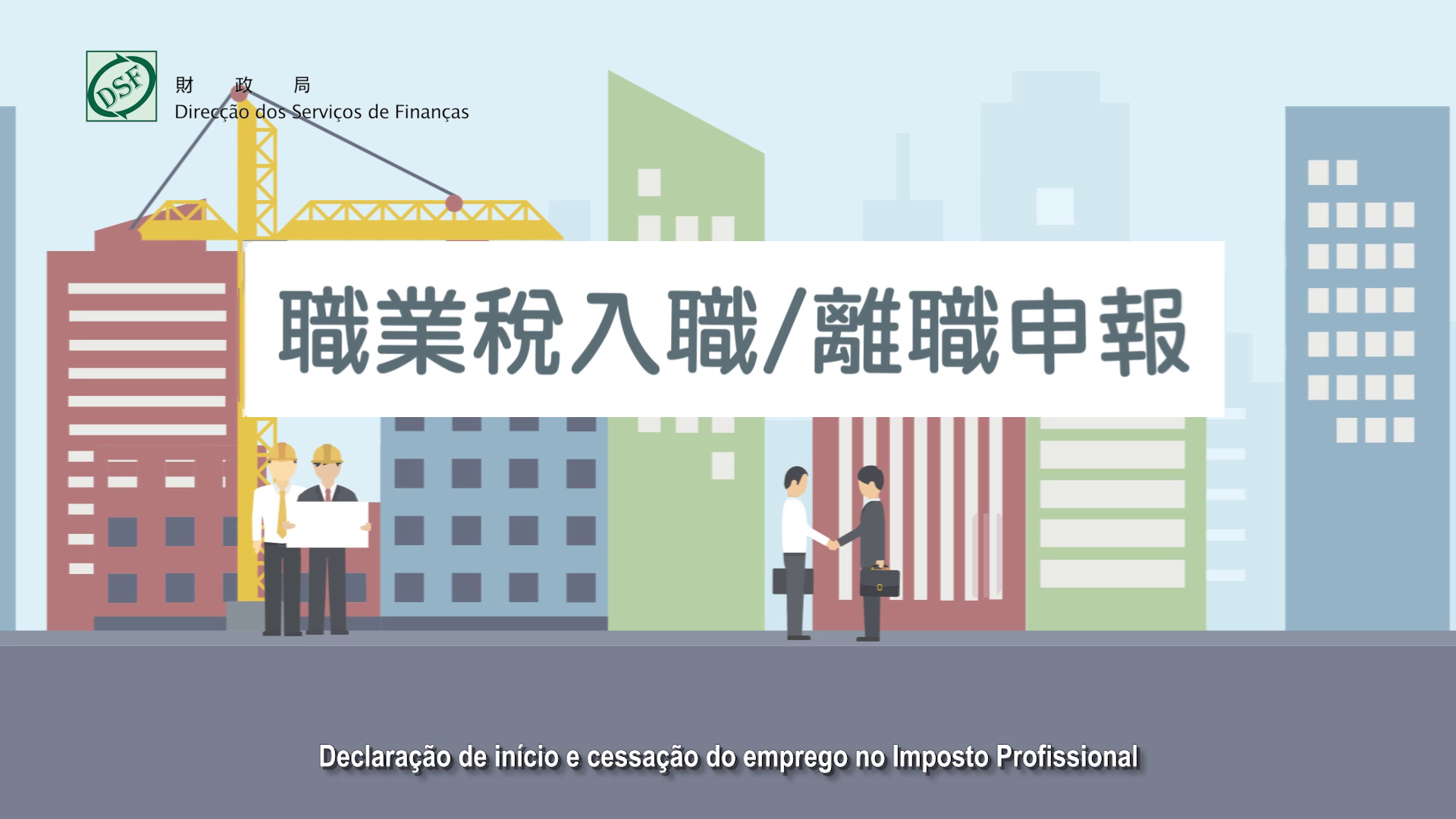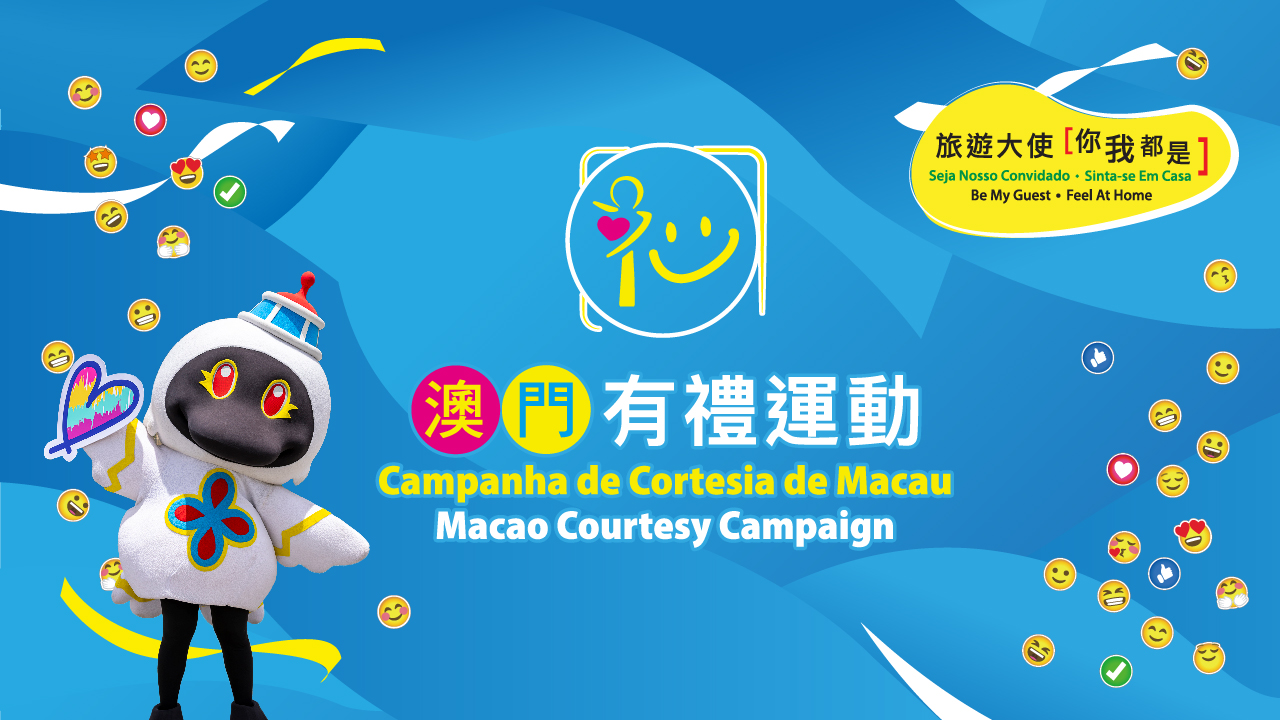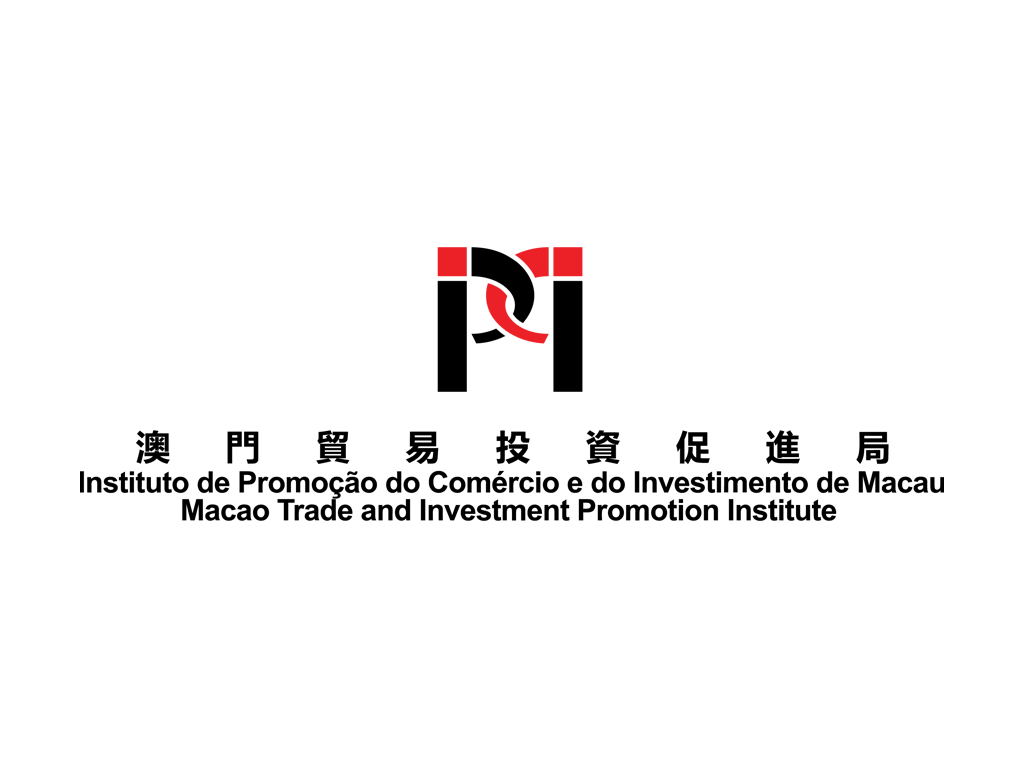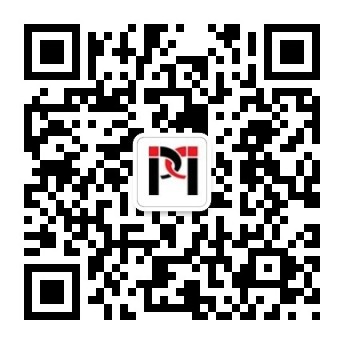Pesquisar
1. Establishment of Joint Commission on Commerce and Trade Promotes Economic Ties Between Macao and Mainland China
The Mainland and Macao Joint Commission on Commerce and Trade, which was established in July 2001, is an official communication channel and coordination mechanism between the two sides.
Mr. An Min, Vice Minister of the Ministry of Foreign Trade & Economic Co-operation, said during the first meeting of the Joint Comission in the Zhuhai Special Economic Zone on that the establishment of trade 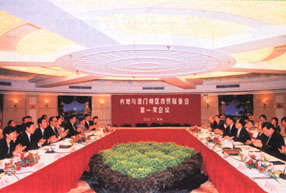 coordination mechanism could effectively solve the problems arising from economic and commercial relations between the two sides. He also stressed that through the Commission a “joint force” was being generated to promote the development of economic and commercial co-operation between the two sides.
coordination mechanism could effectively solve the problems arising from economic and commercial relations between the two sides. He also stressed that through the Commission a “joint force” was being generated to promote the development of economic and commercial co-operation between the two sides.
Macao’s economy started to grow in the 1960s and developed rapidly in the 1970s. The average annual growth rate of its economy between 1971 and 1980 was as high as 16.7%. The rate between 1982 and 1995 was 6.5%. Due to an economic slowdown of neighbouring economies, Macao’s economy suffered four years of negative growth between 1996 and 1999. The economy began to recover in 2000, resulting in a real growth rate of 4.6 per cent in its gross domestic product. Macao has won extensive international recognition and attracted a lot of foreign investors since it is a free port, combined with a highly-open free market system and low tax rates.
Export-geared manufacturing, gambling and tourism, real estate development and financial services are the four economic mainstays of Macao.There is a strong presence of mainland Chinese capital in all these sectors. Statistics show that more than 200 mainland Chinese-owned enterprises have been approved by the Central Government in Beijing to set up branches in Macao, with total assets now over 40 billion patacas. They are in different lines of business and occupy a very strong position in Macao’s economy. The total turnover of Chinese-owned enterprises accounts for around 50 per cent in the financial and insurance sector, around 40 per cent in the export industry, 50 per cent in tourism and the catering industry and 40 per cent in construction and property development. Mainland capital has become the largest source of foreign investment in Macao. At the same time, the mainland is also the biggest supplier of Macao’s essential goods, such as foodstuffs.
Macao Investment in Mainland Totals US $ 10 Billion
Links between Macao and the Mainland China have become increasingly closer since the Central Government’s reform and opening-up policies started at the end of 1970s. Macao’s labour-intensive industries have been gradually transferred to the mainland, and the catering industry and real estate industry have also started to move into the market on the mainland. Macao has the mainland as its backup. Macao is on the coast, which facilitates its communications with the outside world. Goods such as vehicles, electric products and textiles are taken onto the mainland via Macao, while resources from the mainland are brought into Macao. Thus, Macao is blessed with a powerful material provider and a vast market for its economic development. Economic co-operation between the mainland and Macao is gaining strength and, in particular, Macao’s processing industry reflects very well the economic complementarity between Guangdong Province and Macao. By the end of June 2001 there were more than 7,000 investment and co-operation projects from Macao active economic development on the Mainland, especially in the Pearl River Delta. Mr. Tam said 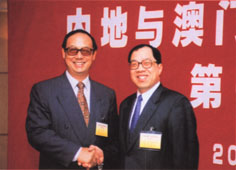 he believed that after China’s accession to the WTO, and in the wake of a new round of reforms and opening-up policies, the demand for cargo transportation, advanced technology, management skills and information in the Pearl River Delta would greatly increase. Macao, as a free port, could fully utilise its advantages, such as its extensive links with the world market. The flow of people, logistics, capital and information in Macao would furhter increase, Mr. Tam said, adding that Macao could play an even more important role in introducing investment, technology, management expertise and information to the Pearl River Delta and assisting the Delta in exploring the international market. This was also the most direct way for Macao to share the opportunities brought by the mainland’s accession to the WTO and the next round of reforms and opening-up policies
he believed that after China’s accession to the WTO, and in the wake of a new round of reforms and opening-up policies, the demand for cargo transportation, advanced technology, management skills and information in the Pearl River Delta would greatly increase. Macao, as a free port, could fully utilise its advantages, such as its extensive links with the world market. The flow of people, logistics, capital and information in Macao would furhter increase, Mr. Tam said, adding that Macao could play an even more important role in introducing investment, technology, management expertise and information to the Pearl River Delta and assisting the Delta in exploring the international market. This was also the most direct way for Macao to share the opportunities brought by the mainland’s accession to the WTO and the next round of reforms and opening-up policies
Mr. Tam also pointed out that economic and trade exchanges and co-operation between Macao and Europe have a long history and a solid foundation. In 1991, Macao and the European Union signed a Trade and Co-operation Agreement. Institutions from the European Union established in Macao the Euro Info Centre, Macao Institute of European Studies of Macao European Documentation Centre and European Tourism Training Centre, all of which are meant to serve all of Asia.
Contacts and Co-operation
Mr. Tam also said that Macao could utilise its role as a special bridge for economic and trade relations between Taiwan and the Mainland to promote economic and trade exchanges between the two sides of the Taiwan Strait. The Central Government in Beijing has given Macao some special policy guidelines on economic and trade ties with Taiwan. Direct flights between Macao and Taiwan enable Macao to play a bigger role in contacts and exchanges between Taiwan and the mainland. Especially as some Taiwanese businessmen have shown great interest in investing in Macao, and some of them have already started to launch their investment projects in here. A number of Taiwanese businessmen have set up companies in Macao before entering the market on the Mainland China. The favourable results of the joint investment promotion efforts by Macao and Zhuhai in April 2001 show that Macao’s role in economic and trade links between the two sides of Taiwan Strait should never be underestimated.
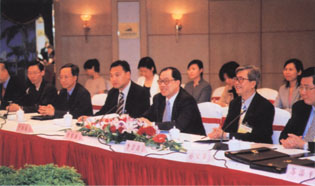 Generally speaking, co-operation and contacts between Macao and the Mainland in the past were non governmental and voluntary, therefore, lacking official co-ordination and communication mechanisms. Co-operation areas also needed to be expanded and cooperative levels had to be upgraded. The establishment of the Mainland and Macao Joint Commission on Commerce and Trade has provided the two sides with an invaluable official communication channel. The establishment and functioning of this mechanism will surely promote economic and commercial co-operation between the two sides.
Generally speaking, co-operation and contacts between Macao and the Mainland in the past were non governmental and voluntary, therefore, lacking official co-ordination and communication mechanisms. Co-operation areas also needed to be expanded and cooperative levels had to be upgraded. The establishment of the Mainland and Macao Joint Commission on Commerce and Trade has provided the two sides with an invaluable official communication channel. The establishment and functioning of this mechanism will surely promote economic and commercial co-operation between the two sides.
2. Over 500 Businessmen Attend Macao and Zhuhai Investment Environment Seminar
Macao and Zhuhai are neighbouring cities with complementary advantages, a fact that promises vast business opportunities. In order to introduce the two cities’ investment environment, government policies and regulations and preferential tax rates to overseas entrepreneurs, the Macao Trade and Investment Promotion Institute (IPIM) and the Zhuhai Branch of the China International Trade Promotion Council jointly held the “Macao and Zhuhai Investment Environment Seminar 2001” for the first time in April 2001. More than 500 entrepreneurs from the Chinese mainland, Taiwan, Hong Kong and Macao attended the Seminar. The Seminar was warmly received and has done well in attracting investment.
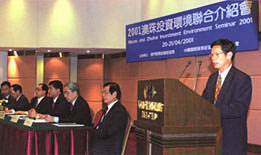
As neighbouring cities, Macao and Zhuhai are both located in the fast-growing and prosperous Pearl River Delta. Macao is a free port that enjoys independent judicial power, separate customs, a well-established telecommunication network and a stable financial system. Macao is one of the founding members of the WTO and enjoys close ties with a lot of international organisations, the European Union and the Portuguese-speaking countries, maintaining a string of co-operation agreements. Zhuhai has rich land resources and cheap labour. Thus the two cities can complement each other. Zhuhai can be the production base, while Macao can be a window for Zhuhai to the outside world. This kind of strategy has been endorsed by entrepreneurs. Mr. Chen Zhengxiong, Head of the Zhuhai Association of the Taiwanese Investors, told Macao Image that, “since the opening of Macao International Airport, a lot of Taiwanese businessmen have come to Zhuhai via Macao to invest here. Their investments have produced very good returns. We hope that more Taiwanese businessmen can make full use of the advantages of the two cities.” Mr. Ding Kaien, Head of the International Chinese Businessman Association, said that as the window for the west part of the Pearl River Delta, Macao has very obvious advantages. Already there are more than 20 entrepreneurs from Taiwan showing great interest in investing. The fair this time is a good start and it will make more Chinese businessmen aware of the complementary advantages of the two cities.
On April 20, 2001, the Lotus Hall on the 5th floor of the Macao World Trade Centre was packed with representatives from business chambers from the Mainland China, Hong Kong, Macao and Taiwan, including the International Chinese Businessman Association, Taiwan Business Council, Taiwan Counties Cross-sector Council, Taiwan Industrial Council, Taiwan Science and Technology Industry Council, China Culture and Economic Development Association, and many consultants in science and technology, finance, tourism, insurance and commerce, as well as munber of lawyers and accountants. Mr. Tam Pak Yuen, and Mr. Zhou Benhui, Vice-Mayor of Zhuhai People’s Government and Head of the Zhuhai branch of the China Trade and Investment Promotion Council, co-hosted the ceremony.
Close Co-operation Promises Mutual Benefits
Mr. Tam Pak Yuen, Secretary for Economy and Finance of the Macao Government, said that “Macao and Zhuhai are China’s Special Administrative Regions and Special Economic Zone, respectively, and they have different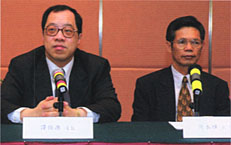 social and economic systems. The Macao SAR Government, while working for economic recovery and development, is committed to the free-market capitalist economic system. Zhuhai has comparatively rich land and human resources, a good infrastructure and a vast market in its hinterland. In view of the trend of globalisation and regionalisation driven by the knowledge economy and the opportunities and challenges presented by China’s future entry into the WTO, Macao and Zhuhai should strengthen co-operation. The combination of two systems can generate great dynamics and achieve development and prosperity for the two cities.”
social and economic systems. The Macao SAR Government, while working for economic recovery and development, is committed to the free-market capitalist economic system. Zhuhai has comparatively rich land and human resources, a good infrastructure and a vast market in its hinterland. In view of the trend of globalisation and regionalisation driven by the knowledge economy and the opportunities and challenges presented by China’s future entry into the WTO, Macao and Zhuhai should strengthen co-operation. The combination of two systems can generate great dynamics and achieve development and prosperity for the two cities.”
Mr. Zhou Benhui, Vice-Mayor of the Zhuhai People’s Government and Head of the Zhuhai Branch of China Trade and Investment Promotion Council, said that, “the Seminar this time will definitely have a positive impact on our economic and trade co-operation. The two cities can take advantage of each other’s strengths for our mutual benefit.”
Both Cities Enjoy a Good Investment Environment
Mr. Lee Peng Hong said that Macao is one of the two free ports in China with free trade policies, a free capital flow, simple tax system and low tax-rates and a well-founded financial service sector. All companies set up in line with off-shore laws and regulations enjoy exemption from certain taxes, including income tax, business tax and stamp duty and other types of taxation. Macao International Airport can take passengers to many places in the world. People from Taiwan do not need a visa for entry into Macao, and enjoy “quasi-direct flights” to the Mainland China via Macao International Airport. Thus Macao has become a transfer point for air cargo and passengers between the two sides of the Taiwan Strait. Macao is a neighbour of Hong Kong. Business operating costs in Macao are lower and the cost of living in Macao is only 40 per cent of that of Hong Kong. In particular, the cost of purchasing or renting top-class residential and business premises correspondes to only about 20 per cent of the cost in Hong Kong. Macao has been ranked second by the United Nations in terms of environmental urban conditions in Asia and Pacific, after Singapore. There are 11 universities and colleges in Macao which provide abundant talents to enterprises. Macao is fully equipped to attract businesses to set up back-office or regional management centres.
Mr. Liu Zhenxin, Vice-Secretary General of the Zhuhai People’s Government, pointed out that Zhuhai is one of China’s first Special Economic Zones. It is also a beautiful garden-like seaside city. Closely connected with Macao, Zhuhai has rich land resources, cheap labour and low production costs. In the future Zhuhai will establish itself as a high-tech industry base, founded on information technology, as well as a production and research base and a base for the export of high value-added products. Zhuhai presented 90 co-operation projects to foreign investors at the fair.
In the Q&A session, participants raised many relevant questions. A Taiwanese businessman enquired about application procedures concerning the import of labour from the Mainland China into Macao. Mr. Shuen Ka Hung, Director of the Macao Government’s Labour and Employment Bureau, and Mr. Lei Peng Hong, President of Macao Trade and Investment Promotion Institute, explained Macao labour law and related regulations, pointing out that foreign businessmen can apply for labour import quota to the Government in line with their respective investment projects. It is up to the Government to review and approve the applications. A Taiwanese businessman suggested the two cities’ Governments should offer more convenient services for the entry and exit of travellers, according to the policy of “one country, two systems”, such as one-time inspection of baggage, shorter walking distance between the two sides, and improved transportation facilities outside the main terminals.
Mr. Zhou Benhui, Vice-Mayor of Zhuhai People’s Government, also said at the closing ceremony that through this Seminar, participants have been given good understanding of the advantages of the two cities in terms of their respective investment environments. Already five or six projects in electronic communication technology are in the process of negotiation. No doubt, the two-day fair achieved satisfactory results.
3. Managing Enterprises by “Linking Production and Marketing” and Utilising Macao’s Advantages
In order to meet the challenge of competition, an entrepreneur must make wise use of available resources and transform them into advantages. He must have a sharp sense of marketing, a long-term strategy of development and a pioneering spirit. Kar Wor Garment Factory (Macau) Ltd. has changed its production base twice since it established a factory in Hong Kong in the 1960s. This enables the factory to fully exploit the complementary advantages of Macao and the Chinese Mainland by applying the principle of “Linking Production and Marketing”.
Mr. Mo Chi Chung, Managing Director of Kar Wor Garment Factory (Macau) Ltd., told Macao Image that many Hong Kong enterprises were drawn to invest and set up factories in Macao in the 1970s and 80s. Many production managers and technical staff in Macao were trained during that period. It is undeniable that Macao only possesses limited land and labour resources. However, fortunately, the adjacent Zhuhai Special Economic Zone enjoys rich land and labour resources, combined with low production cost. This could compensates Macao’s disadvantages. 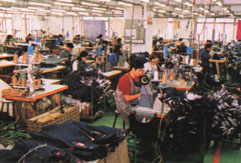
In 1988, Kar Wor Garment Factory (Macao) Ltd. set up its first factory in Zhuhai while keeping Macao as its 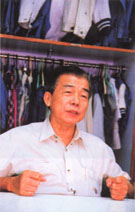 management-control centre. The large labour supply in Zhuhai was the main reason for the company to invest in the Mainland initially. In the early 1990s, as Zhuhai started to restructure its industries, Mr. Mo found a better investment site in the Zhongshan Municipality (a city some 30 kilometres north of Macao). Besides preferential tax treatment, lower fees for temporary residence permits, labour insurance and life insurance, there were two other major advantages in Zhongshan: One is that labour resources are no longer limited by Zhuhai’s Special Economic Zone border controls; the other is the cost on waste water treatment is lower there. Once the second-phase construction of the Zhongshan factory had been completed, it was gradually integrated with the factory in Zhuhai. This created the production base of Kar Wor Garment Factory (Macau) Ltd. in Zhongshan which covers a land area of 146,700 square yards and employs more than 2,500 people.
management-control centre. The large labour supply in Zhuhai was the main reason for the company to invest in the Mainland initially. In the early 1990s, as Zhuhai started to restructure its industries, Mr. Mo found a better investment site in the Zhongshan Municipality (a city some 30 kilometres north of Macao). Besides preferential tax treatment, lower fees for temporary residence permits, labour insurance and life insurance, there were two other major advantages in Zhongshan: One is that labour resources are no longer limited by Zhuhai’s Special Economic Zone border controls; the other is the cost on waste water treatment is lower there. Once the second-phase construction of the Zhongshan factory had been completed, it was gradually integrated with the factory in Zhuhai. This created the production base of Kar Wor Garment Factory (Macau) Ltd. in Zhongshan which covers a land area of 146,700 square yards and employs more than 2,500 people.
At the end of 1970s, Hongkong witnessed an economic boom and its labour costs also increased. Many businessmen established their factories in Macao to utilise its cheap labour, land resources as well as garment export quotas. The 1980s were the golden years for Macao’s manufacturing sector, and Macao’s economy grew rapidly during that period. In the 1990s, as the development of real estate and tourism in Macao led its economy to another peak, some of its work force shifted to the tertiary industry, causing a relative increase in local labour costs. With the introduction of China’s open-door policy, enterprises began to move their factories China to optimise their resources.
Four centuries have passed since Macao became an entrepot between China and the outside world. Macao’s import procedures are simple; transportation and communication facilities are excellent; sales, management and technical staff are plentiful; and visa-free treatment for residents from Europe, the United States and Japan facilitates their stay in Macao to inspect products and hold negotiations. Mr. Mo said, “it takes Kar Wor factory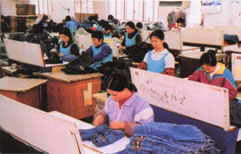 one day to finish samples after the office in Macao receives a customer’s garment design. The sample can be sent to the customer by express mail service on the second day. This meets the customer’s demand for a quick response. Here in Macao, there are 11 colleges and universities that guarantee a constant supply of management and sales staff. Local workers have accumulated a lot of experience in the past 20 years. So it is very easy to find workers who know the whole gamut of garment production or who can speak fluent English. Relatively speaking, staff of this kind are few on the Mainland China. That is why our factory in Zhongshan is managed by staff from Macao. Now we are training our Mainland staff about production management, but one needs time to acquire the necessary techniques and experience.”
one day to finish samples after the office in Macao receives a customer’s garment design. The sample can be sent to the customer by express mail service on the second day. This meets the customer’s demand for a quick response. Here in Macao, there are 11 colleges and universities that guarantee a constant supply of management and sales staff. Local workers have accumulated a lot of experience in the past 20 years. So it is very easy to find workers who know the whole gamut of garment production or who can speak fluent English. Relatively speaking, staff of this kind are few on the Mainland China. That is why our factory in Zhongshan is managed by staff from Macao. Now we are training our Mainland staff about production management, but one needs time to acquire the necessary techniques and experience.”
4. E-commerce in Macao Develops in Line with International Standards
In view of the rapid development of e-commerce, the Macao Special Administrative Region (MSAR) Government established a cross-sector taskforce in 1998 to research and promote EDI (Electronic Data Interchange). This will improve administrative efficiency of the government departments, reduce the flow of goods and turnover of capital and save costs. As the first step towards simplified and digitised international trade procedures, EDI can upgrade Macao’s international competitiveness in foreign trade.
The Macao SAR Government is actively developing the tertiary industry sector, led by the tourism and gambling industry, apart from strengthening the competitiveness of its external trade. Macao’s total import and export trade value reached 203.8 billion patacas in 2000. Due to strong competition caused by globalisation, enterprises are required not only to improve the quality of their products and services, but also to utilise electronic technology to improve their efficiency. This involves co-operation between enterprises and all parts of the trade link, such as the trade licence-issuing authorities, customs, banks, insurance companies, agencies, warehouses, transportation companies and other entities.
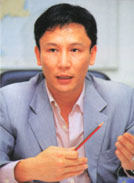
Mr. Ng Kuok Heng, Head of Customers Inspection of Macao Marine Police, promotes use of E-Customers in Macao
The rapid development of electronic technology has changed the method of transferring documents and files in trade transactions. Macao’s pre-1999 Portuguese administration set up a cross-departmental taskforce comprised of representatives from the Economic Services, Marine Police, Statistics and Census Service and the Macau Productivity and Technology Transfer Centre. The aim of this taskforce is to promote the utilisation of EDI between government offices and enterprises to improve efficiency, reduce mistakes, lower costs and further improve the competitiveness of the Macao Special Administrative Region.
EDI Can Reduce Mistakes by More Than 50 Per Cent
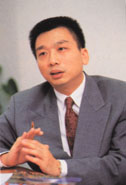
Mr. Mathew Cheong, Managing Director of Macao EDI VAN S.A., explains Macao’s development of e-commerce
Mr. Ren Wenai, lecturer at the Department of International Trade of Taiwan’s Qiaoguang Technology College, points out that more than 30 kinds of documents are involved in a single international trade transaction, 70 per cent of which are provided by a third party. Every party involved in the transaction process will type again these 70 per cent of the documentation involved into their own system to generate new documents and send the new documents to other partners. About one quarter of the costs involved are incurred by repeatedly inputting and processing documents. It is estimated that seven per cent of total international trade costs per year are caused by low efficiency in trade management, which means about US $ 420 billion each year. According to the statistics of the International Maritime Bureau, every year 20 per cent of all shipping documents contain mistakes, thereby delaying Customs clearance.
EDI means that standard files are transferred by computers and communication networks without manual typing. Besides, thanks to the same standards in composition, either side can use computer systems to recognise and process information provided by the other. This will greatly improve the efficiency of document transfer and transaction. In an EDI system, all users will, according to international data formats, code their documents, including inquiries, quotations, orders, invoices, delivery documents, shipping order, customs declaration forms, import and export licences and other types of international trade documents. Thus all these documents will be part of the standard EDI documentation.
Research shows that EDI can reduce mistakes caused by repeated typing by more than 50 per cent; at the same time, costs will be lowered as no time will be wasted on repeated typing, signature checks, proof-reading and approval procedures.
To Meet Market Demand
The taskforce has adopted a step-by-step experimental method. As textiles and garments usually account for more than three quarters of Macao’s total merchandise export value and the number of licenses for textiles accounts for around 40 per cent of the total licences issued, the first stage of the EDI experiment is to deal with the application and approval of export licences for quota-restricted textile exports and related Customs administration.
In April 2000, the Macao SAR Government, together with the Macau Telecommunications Company (CTM), the Macau Productivity and Technology Transfer Centre and eight private enterprises in Macao jointly set up MACAU EDI VNA S.A. to establish the EDI system between the Government and enterprises and expand the use of e-commerce to all sectors and fields.
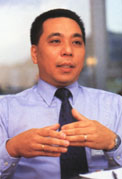
>Mr. Tam Chun Kit, Director of the Government’s Statistics and Census Services, says EDI can reduce manpower.
EDI in Macao functions according to UN/EDIFACT standards. Electronic information processed by the MTTC is sent to a user’s mail box instantly, with the backup information kept in the data centre for 30 days and after that for 7 years in cassettes. As electronic license application forms are regarded as legal documents, enterprises have to apply to MTTC for registration of their digital signature, so as to become a recognised user of the system, thereby ensuring the safety of the documents and the identity of the user. All applications can only be sent to Economic Services if they contain the respective digital signature.
Electronic Management of Certificates of Origin
Export licences and certificates of origin started to be handled electronically in September 2000 and in May 2001, respectively. Exporters can, through EDI, apply to the Economic Services Bureau for a full set of export documents for quota-restricted garment exports, including export licences, certificates of origin, special customs invoices and international export licences. Before shipment of the goods, exporters can type the documents of export commodities and the electronic signature of the producers and sign the documents electronically and send them via the network to Economic Services by e-mail. Once the application is approved, an electronic notice will be sent to the exporters and the Macao Customs . Exporters can print the export licenses themselves and go through procedures with the Macao Customs; after which the latter will send the relative documents to the Economic Services and the Statistics and Census.
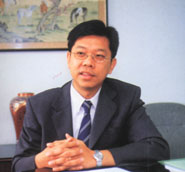
Mr. Sou Tim Peng, Acting Director of the Economic Services.
Mr. Sou Tim Peng, acting director of the Economic Services told Macao Image that “by applying through EDI for export licences, certificate of origin, special customs invoices or international export licences, the time needed to have the documents approved has been cut from five working days to just two. Thus efficiency has been improved, as required by local factories. As the information transferred through EDI can be used directly, personnel in my department do not have to type and sort out the information and the storage of information is also simplified.”
Automatic Customs Declaration
Through the EDI network, the Macau Marine Police and Customs ( PMF )has set up a network of seven terminals in Macao to handle automatic customs declaration. Mr. Ng Kuok Heng, Head of Customs Inspection, said that, “instant access to information is vital to enhancing Customs control and management of exports and imports. Under the EDI system, customs declaration documents will be typed into the database in the computer.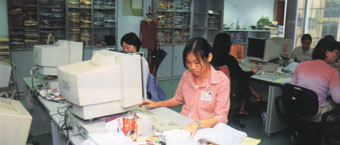 If there is any irregularity, all the past files of the applicant are easily accessed. Thus the officials can make timely analysis and risk evaluation based on how to proceed, and whether it is necessary to investigate further. Once EDI is in full operation, the goal of my department is to achieve automatic customs clearance so as to reduce man-made mistakes, to have the applications reviewed automatically and uniformly and to improve efficiency.”
If there is any irregularity, all the past files of the applicant are easily accessed. Thus the officials can make timely analysis and risk evaluation based on how to proceed, and whether it is necessary to investigate further. Once EDI is in full operation, the goal of my department is to achieve automatic customs clearance so as to reduce man-made mistakes, to have the applications reviewed automatically and uniformly and to improve efficiency.”
The Statistics and Census Service handles 2,000 to 3,000 export and import documents sent in by the Macau Marine Police and Customs ( PMF ) everyday. Staff firstly divide these documents into different categories, then code them according to the variety of merchandise concerned and finally input the information contained in these documents. In order to ensure accuracy, inputting is done twice. Mr. Tam Chun Kit, Director of the Government’s Statitics and Census Service said that “in EDI, there is no need to manually type-in and the information is already categorised. Our staff only need to check the code of the merchandise concerned so as to save information in the data centre. With the simplified working procedures, our department can optimise our human resources management, that is, staff can be transferred to other posts which machines cannot deal with like attending to the public. This also enables information to be made public at an earlier date, which is beneficial to the decision-making of the authorities and users.”
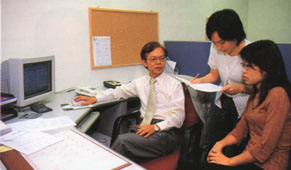
Macao EDI Van Company (TEDMEV) S.A.
In other countries, EDI has been widely used in many industries, such as transportation, retail, manufacturing, finance, storage, electronics and the insurance sector. The basis for enterprises to decide whether to introduce the system or not is a simple cost-output ratio. Mr. Mathew Cheong, Managing Director of Macau EDI VAN S.A. said that “users only need to pay 4,000 to 5,000 patacas to get the information transfer and exchange hardware and get connected to the network of my company to apply for licences from the government. Besides, my company will offer a service called WEB-EDI starting in August 2001. Those not-so-frequent users can make application via the internet.”
Lower Cost by Shortening Settlement of Payments
Mr. Jackson Tsui, Managing Director of Jackson Trading Company Limited said that, “in order to export garments to the US, exporters must have three documents: an export license, a certificate of origin and a special customs invoice. All these documents shall be re-typed into the computer three times. But by using EDI, one-time input of the information will suffice. At the same time, as information is transferred electronically, no staff is needed for the work.”
Small orders and quick delivery are today’s trend. Clients usually know the exact quantity of the goods when the date of delivery approaches. “In the old way, the application has to be submitted three days before the date of delivery. If the quantity indicated on the application is different from the actual one, some quota will be wasted and the documents will also need to be modified. The changes take 15 days, which means exporters will not be able to seek payment from the bank designated by the importer until 15 days after the delivery of goods when the changed documents are ready. EDI enables exporters to apply for an export license on the day of delivery or the day before that, and normally the importers have already determined the exact quantity. So this will make document changes less likely. For exporters, this will reduce cost, quicken the settlement of payments and, most importantly, speed up capital turnover,” said Mr. Tsui.
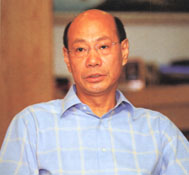
Mr. Jackson Tsui, Managing Director of the Jackson Trading Company Limited
Mr. Cheong said that “electronic applications for import and transit certificates will be available this year. EDI is one of Macao’s first steps in utilising information technology. According to our five-year plan, we will introduce e-commerce to logistics centres, supply chains and other areas.”



